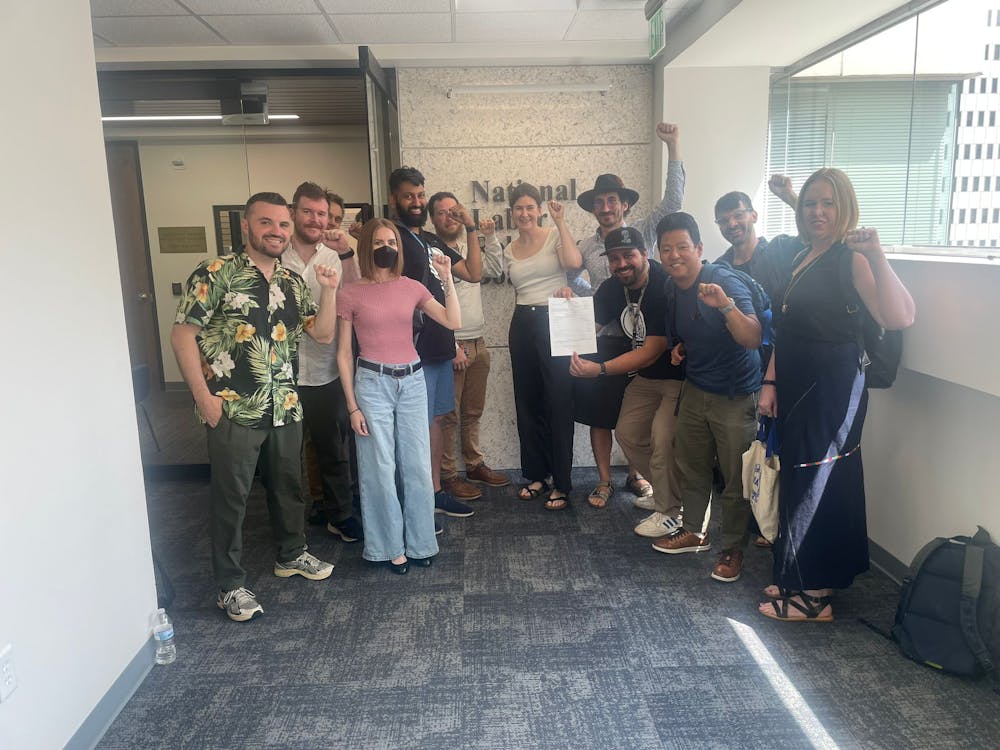The University hosted its second National Hazing Prevention Week from Sept. 18 to Sept. 22. Created by HazingPrevention.Org, the event happens annually during the last week of September at various U.S. college campuses to raise awareness about the negative impacts of hazing.
The week is held during a time when many student groups are in the process of recruiting new members.
HazingPrevention.Org defines hazing as “any action taken or any situation created intentionally that causes embarrassment, harassment or ridicule and risks emotional and/or physical harm to members of a group or team, whether new or not, regardless of the person’s willingness to participate.”
According to the University of Maine’s 2008 National Study of Student Hazing, 55 percent of students involved in clubs, teams and organizations experience hazing during college, but only five percent report it to college administration or law enforcement authorities.
The Office of Fraternity and Sorority Life (FSL) and Hopkins Athletics planned the week, which kicked off with a midnight breakfast. Other events included a trivia night with JHUnions, a screening of a documentary, a men’s soccer game and a These Hands Don’t Haze Banner, where students put their handprints and signatures on a banner.
Students involved in either Fraternity and Sorority Life or Hopkins Athletics were required to attend at least one of the events during the week.
Associate Dean of Student Engagement Tiffany Sanchez explained that the hazing prevention programming did not exist before last year. While she did not plan the event, she had a role in encouraging its founding.
Sanchez listed out some of the negative effects of hazing.
“Mental issues can really be exacerbated by hazing,” Sanchez said. “Alcohol issues within families can be exacerbated... It’s important to us that we’re educating students to be aware of that, and that these things aren’t allowable.”
She explained that hazing often happens because of the power dynamics between students.
“What happens with hazing is that students don’t necessarily know that they have a choice because of the power differential,” she said.
She condemned hazers for being careless and warned students to be cognizant of the risks that come with hazing.
“Sometimes students have the sense that ‘oh, what we’re doing is not that bad... but the truth is that it can be incredibly damaging,” Sanchez said. “You don’t know what’s going on with every student. You could impact their health and safety with alcohol. It’s really irresponsible.”
Senior Joan Golding, vice president of recruitment for the Panhellenic Association at Hopkins, said that Hazing Prevention Week offers a necessary platform for discussion on an important issue.
“It’s definitely something that we can’t pretend doesn’t happen,” she said. “I feel like we at least need to start a conversation about it as opposed to just shoving it in the corner and not talking about it just because it is something that isn’t necessarily fun or light to talk about.”
She believes that hazing is a problem on any university campus and pointed out that hazing is a problem that does not occur exclusively within fraternities and sororities.
“A lot of the sports teams and club sports teams have had some sort of programming about hazing because they are also affected by it,” Golding said.
Dumaka Shabazz, a federal public defender and adjunct law professor at Vanderbilt University, gave a keynote speech on hazing on Sept. 20.
Students like sophomore Ernie Alex, a member of Phi Kappa Psi, praised Shabazz for her keynote.
“It was really powerful,” said Alex. “We don’t usually realize the impact that hazing can have on people.”
The men’s soccer game, which took place two hours after the keynote, incorporated hazing statistics and trivia at half-time. Students earned prizes for answering questions about hazing.
The These Hands Don’t Haze Banner took place from Sept. 20 to Sept. 22 at varying locations. The event has been part of many anti-hazing campaigns across college campuses. By placing their handprints and signatures on the banners, participating students pledged not to haze and to hold those who do so accountable.
Sophomore Charlie Guan, a member of Phi Gamma Delta, said that the These Hands Don’t Haze Banner event demonstrated solidarity.
“People at Hopkins are united about anti-hazing, and it’s important because hazing destroys communities,” Guan said.
Jacob Took contributed reporting.





